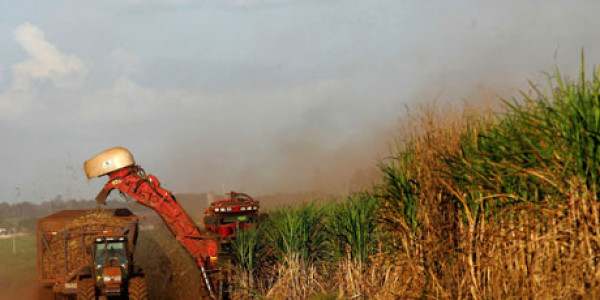Taylor Scott International News
Even so-called ‘good’ biofuels need safeguards to ensure that they don’t damage biodiversity or displace other crops Ben Phalan theguardian.com , Thursday 29 August 2013 18.06 BST Biofuel crops increase emissions through land clearance, fertiliser use, and by displacing other crops. Photograph: Sipa Press/Rex Features Since 2003, the UK and other EU countries have effectively poured billions of euros into biofuels , on the premise that they reduce emissions from transport. But it has been an expensive case of the Emperor’s new clothes: we now know that many biofuel crops actually increase overall emissions . At the same time, they damage biodiversity, hurt some of the world’s poorest people by pushing up food prices , and cost us an estimated £460m each year. Early in September, the European Parliament will have its first opportunity to put the brakes on. MEPs will vote on whether to amend biofuels policy to take account of the critical issue of indirect land use change (iLUC) and at what level to cap biofuels made from food crops. Biofuel crops increase emissions through land clearance, fertiliser use, and by displacing other crops. When millions of hectares of land are switched from food to biofuel crops, food prices rise and food production is displaced , triggering a domino-like chain of events ending in cropland expansion elsewhere, including into the tropical forests of Southeast Asia and the savannas of South America and Africa. This is iLUC. We can’t point to the precise hectare of rainforest that’s felled because a particular farmer now grows fuel rather than food. But the evidence is clear that burning millions of tonnes of food as biofuel on top of what we eat leads to more land clearance and more fertiliser use (even accounting for useful biofuel co-products fed to animals). UK biofuel use in the first year of monitoring required around 1.4 million hectares of farmland, most of it overseas. That’s an area the size of Northern Ireland, just to provide 3% of our transport fuel. By ignoring iLUC, the EU overlooks a large share of the emissions triggered by its biofuel targets. ILUC is not just about carbon. Agricultural expansion and intensification are among the greatest of all threats to wild nature. Each year, millions of hectares of new cropland threaten tropical forests, wetlands and other biodiversity-rich habitats. Fertiliser run-off from the US corn belt, which supplies us with bioethanol, helps create an oxygen-depleted ‘dead zone’ in the Gulf of Mexico. The EU’s Renewable Energy Directive has laudable ‘sustainability criteria’, but unsustainable biofuels can still be imported; they just don’t count towards the targets. Furthermore, the criteria don’t address iLUC, so biofuel demand continues to cause deforestation and biodiversity loss . If a domino falls in the forest, apparently no-one can hear it. Some in the biofuels industry don’t want iLUC factors introduced next month, because some crops would no longer be counted as ‘green fuels’. But fuels that trigger deforestation, increase emissions and destroy biodiversity are not ‘green’. Supporters of the industry argue that iLUC factors are too uncertain for policy. But they seem happy for policy to support an industry whose promise to deliver lower emissions is even more doubtful. The irony is that any carbon benefit of biofuels is based on their indirect effect in replacing and reducing fossil fuel use. It’s nonsensical to argue that food-based biofuels should be supported for this indirect carbon benefit without also counting their indirect carbon cost. MEPs will also vote on whether to cap use of food as biofuel at 5.5% or 6.5% of transport fuel . The lower cap would protect existing jobs while sending a clear message to investors that food-based biofuels are a poor prospect. In the longer term, we should ask whether it is rational to burn any food at all in our cars. The right biofuels have a role to play in our energy mix, in the right quantities. Governments should continue to support the development of advanced biofuels, such as those made from waste and those grown in places unsuitable for food crops. But even these ‘good biofuels’ need safeguards to ensure that they don’t damage biodiversity or displace other crops. In the meantime, it’s clear that the Emperor has no clothes. Will the European Parliament listen to the science, and curb the unseemly rush for food-based biofuels? I’ll be writing to ask my MEPs to vote for a more modest approach, and I urge you to do the same . • Dr. Ben Phalan is a research associate in conservation science at the Department of Zoology, University of Cambridge, and is the Zukerman junior research fellow in global food security at King’s College.[/font][/color] Taylor Scott International
Taylor Scott International, Taylor Scott








